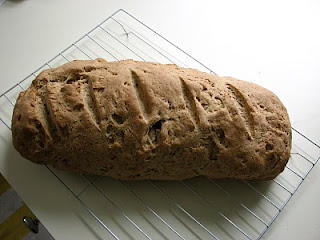I am glad I read this book, but I have to admit (coward that I am) that it was a book I didn't read in public for fear someone (yeah, like so many people are just watching everything I do) would think I was a fan. I'm not, but I respect Sarah Palin more after reading her book. I have no idea what the REAL back story is; perhaps, there is so much more that she chose not to write, and perhaps she generously edited events in her favor, but there was enough in Going Rogue to at least make me sit back and wonder about the machinations of some of the media (a lot of the media) and John McCain's advisors/managers during and after the campaign. This is her side of the stories we all heard, and about which most of us Democrats rolled our eyes. In this book, to her credit, she never once said anything negative about McCain and seemed to have the highest respect for him and his wife, and she made very few negative comments about Obama or Hillary Clinton, or even the Democrats except in general ways as she disagrees politically.
Sarah Palin truly admired Ronald Reagan. She barely mentions other Republican presidents. She believes in and knows about fossil fuel energy, and even occasionally gives a nod to alternative energy sources. She did a lot for Alaska, but I cringe to think that she COULD be President (truly a remote possibility, I hope), not because she isn't intelligent enough but because she has utmost confidence in her skewed beliefs and philosophies which, in my opinion, are way too parochial and limited, and unfortunately probably racist. It may be that she thinks what worked in Alaska would work in the country as a whole. LIving in Alaska for almost her whole life, with its land and space and resources and lack of diversity has certainly shaped her perspectives, and she has easy responses to why government shouldn't be involved as much as it is. It is hard to tell how her personal beliefs would influence her policies. Maybe not as much as we think, but then again......
I do think she is an extraordinary woman in what she has accomplished and in that she continues to have the energy and passion and (perhaps) ambition to be a catalyst for political change.
What happened when I read this book is that I admired her personally but not politically. She is a mother, a wife, a professional...she seems to handle all of it without too much ado, nor does she seem to take herself all that seriously (could be wrong here....) I did not get the impression that she was unduly bothered by the angst of most modern women. Perhaps I am naive, but Sarah Palin seems to be a very grounded modern woman, with a supportive, lively family, juggling it all. She is physically active; she is a mother and wife and participates in the lives of her kids and her husband in ordinary ways; she has a large extended family and dozens of friends, and she has a solid faith, but does not seem dogmatic or uncompassionate, or too judgmental or critical (could be wrong....)
Not that I don't have reservations and curiosity about how faithful to the truth she was in her book, but I won't be as quick to dismiss her. On the other hand, I am certainly thankful she and McCain are not in the White House.
UPDATE 08/28/2010: I am reconsidering my opinion of SP....let's see what happens today at the Mall.

